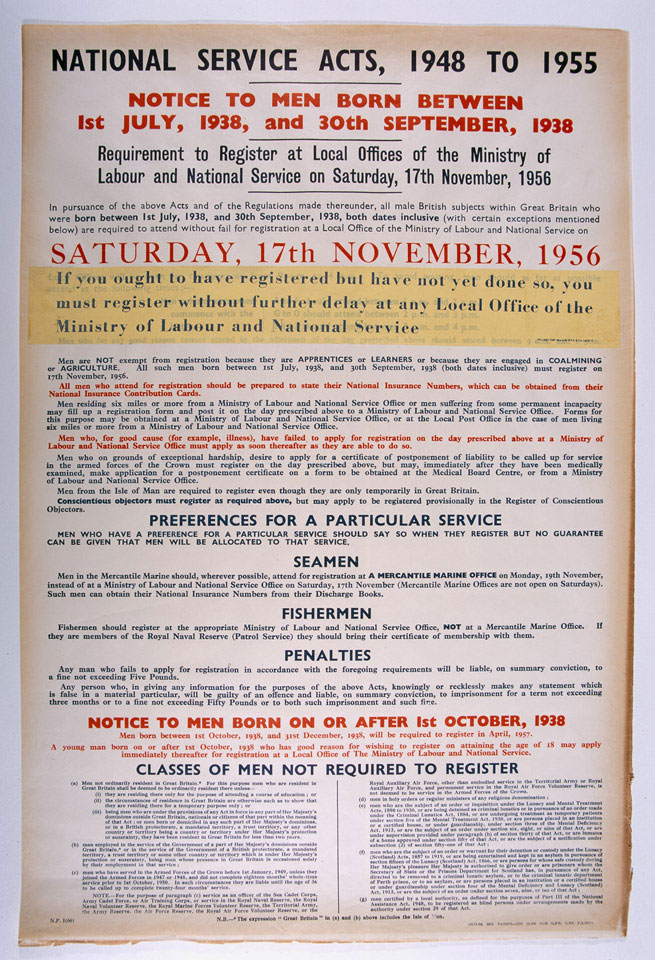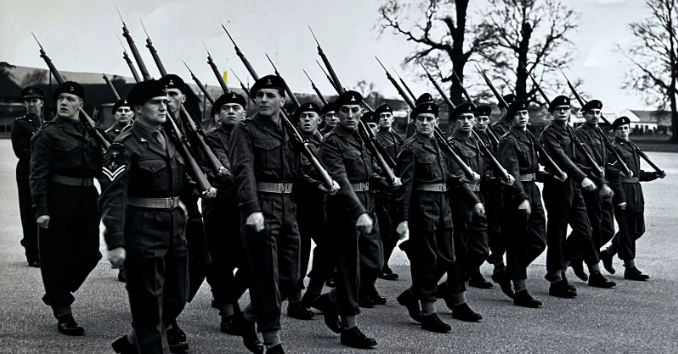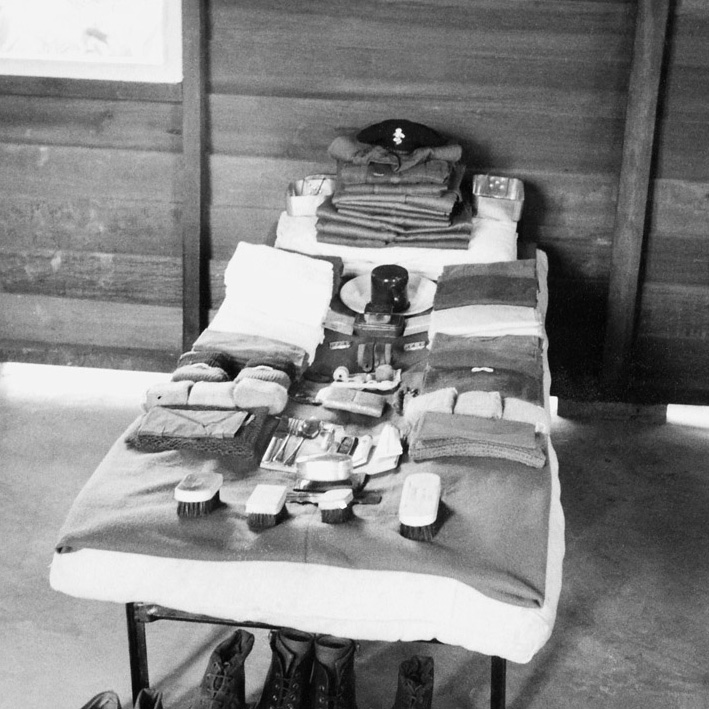Peacetime Conscription
The National Service Act of 1947
In 1947, yet another National Service Act was passed. This act required all physically fit men between the ages of 17 and 21 to serve an 18-month period in the armed forces. Although there was no longer a war, this new National Service Act was necessary for further political and military strategic purposes.
“The end of the Second World War did not bring an end to British military commitments abroad. Britain still needed to maintain her diminishing Empire, occupy post-war Germany and Japan, and re-establish influence in the world, particularly in the Middle East.”
Unknown author, National Army Museum
The few exempt from peacetime conscription included government employees, veterans, and clergymen. Students and apprentices had the right to defer their call-up until their education or training was finished.
Because the United Kingdom's military occupations needed support, most citizens agreed that it was their responsibility to put their lives on hold and serve their country, even during peacetime.
Registration
Although self-enlisted soldiers could choose their position or service, conscripts were not offered that opportunity.
“Men who have a preference for a particular service should say so when they register but no guarantee can be given that men will be allocated to that service.”
National Service Acts, 1948 to 1955

Poster reminding eligible men to register for conscription, 1948
National Army Museum
Experiencing National Service
National Servicemen spent most of their time either training or doing small jobs, in addition to preparing for routine inspections.
“Inspections of living quarters were carried out regularly. We were all naturally lazy, but some, lazier than others, reported sick for trivial reasons before morning parade. To be given light duties, such as sweeping out the barrack room or cleaning the bathhouse, was considered an achievement as much of the day could be spent relaxing on a bed.”
Eric M. Malcolm, National Service High Jinks (A Young Man Story 1947-49)
“They never let you be idle. At dawn you were scrubbing decks. We used to scrub decks in bare feet in winter.”
Harry Cornforth, Royal Navy, 1949–1951
“You were in mess rooms with about 20–30 people. Sort of hung your hammocks up and slept in those. Then you went outside and either started painting some stuff or did little jobs that needed doing round the ship.”
Denny Terry, Royal Navy, 1954-1956

National Servicemen during a marching drill, 1960
Royal British Legion

Contents of a soldier's kit, 1955
National Army Museum
Since they were serving during peacetime, many conscripts believed their service was an unnecessary waste of time. They would have preferred to stay at home with their families and exercise their rights to education and careers.
“One officer recalled his service in Egypt thus: 'The war time conscripts, still awaiting demobilization, were bored with playing soldiers in the desert ... while the recent arrivals needed convincing that their stint in uniform was necessary.'”
Richard Vinen, National Service: A Generation in Uniform
The End of Peacetime Conscription
Peacetime conscription ended in 1960, due to concerns that having a large army would be too large a threat during the Cold War. The last national serviceman was released in 1963.
“As the British empire dwindled in size, Britain had less of a need for large armed forces to protect its overseas territories. A review of Britain’s defence resources in 1957 reassessed the need for conscripts and, taking into account advances in nuclear warfare, large armies were deemed ineffective compared to modern weapons.The changing nature of war meant that professional soldiers were now needed, and the training of large numbers of national servicemen took away these experienced men – not to mention depleted British workforces. The last national serviceman – Second Lieutenant Richard Vaughan of the Royal Army Pay Corps – was demobbed in May 1963.”
Emma Slattery Williams, 2024, HistoryExtra